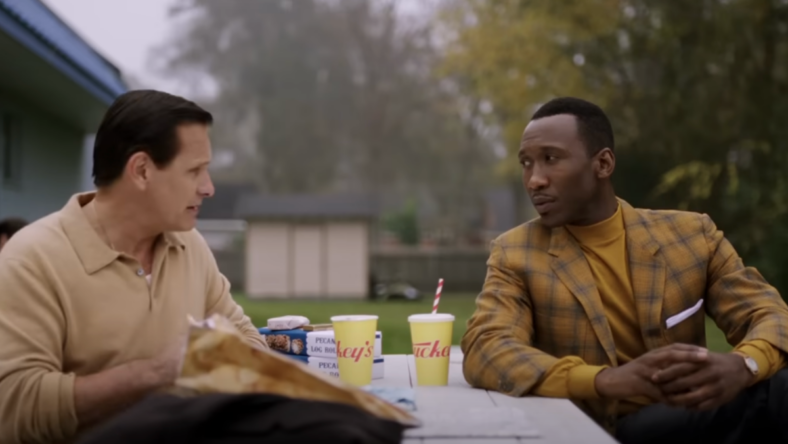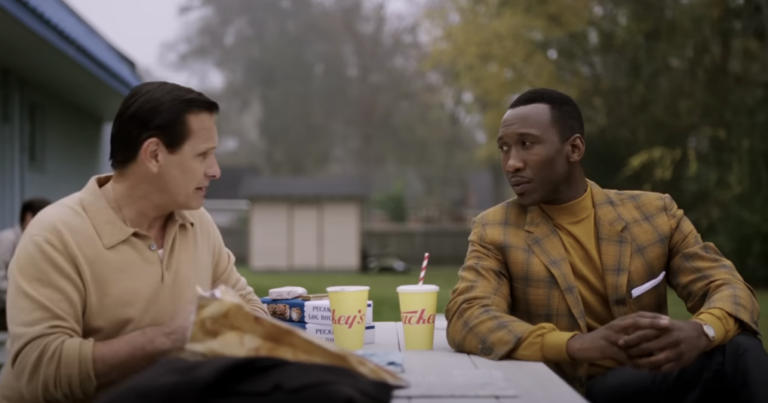
With the 2025 Oscars coming right up, movie fans everywhere are looking back on some of Hollywood’s most controversial moments. The Academy Awards have delivered their fair share of shocking decisions over the decades, leaving audiences perplexed when unexpected winners took home the gold statue. As film buffs prepare their prediction brackets for this year, let’s look back at the ten most controversial Oscar wins of all time that still spark heated debates today.
‘Bohemian Rhapsody’ – Best Editing

First up on our list of the most controversial Oscar wins is Bohemian Rhapsody winning Best Editing at the 91st Academy Awards. This Queen biopic film’s editor, John Ottman, won the Oscar despite the film being widely criticized for its choppy cutting style.
Though the film had already won at the industry’s ACE Eddie Awards, the Oscar win sparked tons of outrage online. Fans pointed to scenes with the band meeting manager John Reid, which according to many, was dizzying and had far too many cuts.
Later, even Ottman himself admitted that watching that scene made him “want to put a bag over my head.” With better-edited nominees like The Favourite and Vice overlooked, this is still one of the Academy’s more questionable winners in recent years.
‘Forrest Gump’ Winning Best Picture

Next up is Forrest Gump which won Best Picture at the 67th Academy Awards. This feel-good historical drama swept the ceremony with six total wins.
While audiences loved Tom Hanks as the simple man experiencing major historical events, many film fans now believe Pulp Fiction deserved the win. Tarantino’s iconic film had to settle for just a Best Original Screenplay award despite its storytelling and lasting cultural impact.
Over time, Forrest Gump has been criticized as too sentimental, while Pulp Fiction is now considered a defining piece of 90s cinema. This safe choice shows how the Academy often favors heartwarming stories over bolder, creative filmmaking.
Also Read: 10 Celebrities Who Made Glasses Look Good
Will Smith Winning Best Actor… Right After the Slap

Even if you have never watched the Oscars, you have probably heard about or seen “the Will Smith slap”. Will Smith’s Best Actor win for King Richard at the 94th Academy Awards came just minutes after he shocked viewers by slapping Chris Rock onstage after Rock joked about Smith’s wife, Jada.
Smith’s portrayal of Richard Williams, the father of tennis stars Venus and Serena, was largely overshadowed by this unexpected moment of violence at Hollywood’s most prestigious ceremony.
What should have been a career highlight instead became a PR disaster. Shortly after this controversy, Smith resigned from the Academy and was banned for ten years from all Academy events.
Related: Here’s Who Should Have Won: 2025 Golden Globe Award Edition
Marlon Brando Declining Best Actor for ‘The Godfather’

Next, we had to include Marlon Brando‘s shocking Best Actor rejection for The Godfather at the 45th Academy Awards. The actor actually boycotted the ceremony and sent the maybe-Apache actress and activist, Sacheen Littlefeather, in his place.
At the podium, she declined the award on Brando’s behalf. The audience booed and cheered simultaneously as she cited Hollywood’s mistreatment of Native Americans as the reason. This protest shook the entertainment industry as Brando chose activism over accolades.
Of course, this controversial moment launched decades of debate. Some called Brando courageous for spotlighting Indigenous rights, while others labeled him self-righteous for using Littlefeather. The Academy later apologized to Littlefeather in 2022, admitting her mistreatment that night. But, in the end, Brando’s refusal is still one of the most powerful statements in Oscar history. His bold move forced Hollywood to confront its problematic portrayals decades before “representation” entered the mainstream conversation.
Roman Polanski Winning Best Director

Roman Polanski‘s 2003 Best Director win for The Pianist stunned viewers worldwide. The exiled filmmaker couldn’t claim his award in person due to his 1977 sexual assault case. During this case, he was found guilty of drugging and having sexual intercourse with a minor, serving 42 days behind bars.
The controversy deepened when A-list celebrities defended the decision. Indeed, many argued his Holocaust drama deserved recognition regardless of personal crimes. Yet victims’ advocates condemned this rather convenient separation of art from artist.
Years later, when #MeToo movement exploded, the Academy expelled Polanski from its membership for not meeting the organization’s standards of conduct.
Marisa Tomei Winning Best Supporting Actress

Another controversial Oscar win was Marisa Tomei‘s surprise 1993 Best Supporting Actress win for My Cousin Vinny. When they announced her name, critics gasped. Insiders whispered conspiracy theories. Some even claimed that presenter Jack Palance had announced the wrong name, but The Academy firmly denied these rumors.
This win defied traditions, as comedic performances rarely earn acting awards at the Oscars. Yet, this time, the first-time nominee beat out multiple established stars. She later earned two more Oscar nominations, silencing early doubters who questioned her comedic breakthrough.
‘Driving Miss Daisy’ Winning Best Picture

Up next, Driving Miss Daisy claimed Best Picture at the 62nd Academy Awards, which many didn’t agree with. The film paired Jessica Tandy with Morgan Freeman in a story about friendship across racial lines. Their performances elevated material that many now consider simplistic.
That being said, the film faced fierce competition from BAFTA winner Dead Poets Society and Golden Globe winner Born on the Fourth of July. However, the reason that Driving Miss Daisy’s victory was truly so controversial was that it won in a year when the Academy had basically shut out Spike Lee’s Do the Right Thing. Many now view this omission as one of the Academy’s most glaring mistakes.
This controversial win highlights Hollywood’s comfort with certain racial narratives, too. The Academy rewarded a film showing racial harmony rather than Lee’s challenging exploration of ongoing tensions.
‘Life of Pi’ Winning Best Cinematography

Ang Lee’s Life of Pi won the Best Cinematography Oscar in 2013, taking viewers on a journey as a boy and tiger shared a lifeboat. Digital art and effects combined seamlessly with cinematography. Each frame balanced reality with fantasy.
But, the critics divided sharply on this one. Veteran cinematographer Christopher Doyle erupted with rage. “That’s not cinematography… You’ve lost cinema.”
Nonetheless, the film won both Cinematography and Visual Effects Oscars that night. This double victory highlighted cinema’s effect evolution. Meanwhile, visual effects studio Rhythm & Hues filed for bankruptcy shortly before their Oscar win, also showing Hollywood’s troubling relationship with digital artists.
‘Green Book’ Winning Best Picture

Next, Green Book was the surprise winner at the 91st Academy Awards. This road trip drama ended up claiming three Oscars despite mixed critical reception.
Many film scholars argue Spike Lee’s BlacKkKlansman and Alfonso Cuarón‘s Roma were robbed. This same year, these more innovative films received technical awards but missed the main prize. So, naturally, Green Book faced immediate backlash. Its simplistic take on 1960s racism felt dated and the “white savior” framing drew criticism from many Black filmmakers and historians.
On the other hand, Roma won the Oscars for director, cinematography, and international feature, with 10 nominations. But, Green Book joined the Academy’s long list of controversial Oscar wins, instead.
‘Shakespeare in Love’ Winning Best Picture

Capping our list of the most controversial Oscar wins is Shakespeare in Love winning Best Picture at the 71st Academy Awards.
The film’s win over Steven Spielberg‘s war epic Saving Private Ryan remains one of the Academy’s most controversial decisions. While Shakespeare in Love charmed audiences with its clever script and performances from Gwyneth Paltrow and Joseph Fiennes, many felt Saving Private Ryan should’ve won. It was the more significant achievement, with its D-Day sequence and portrayal of WWII sacrifice. But, yet again, a lighter, more palatable movie took home the victory.
The upset is often attributed to Harvey Weinstein’s aggressive Oscar campaign tactics rather than the film’s artistic merits. Two decades later, film buffs definitely still debate this choice, with Private Ryan widely considered the more influential work, despite losing the top prize.
More About:Movies
